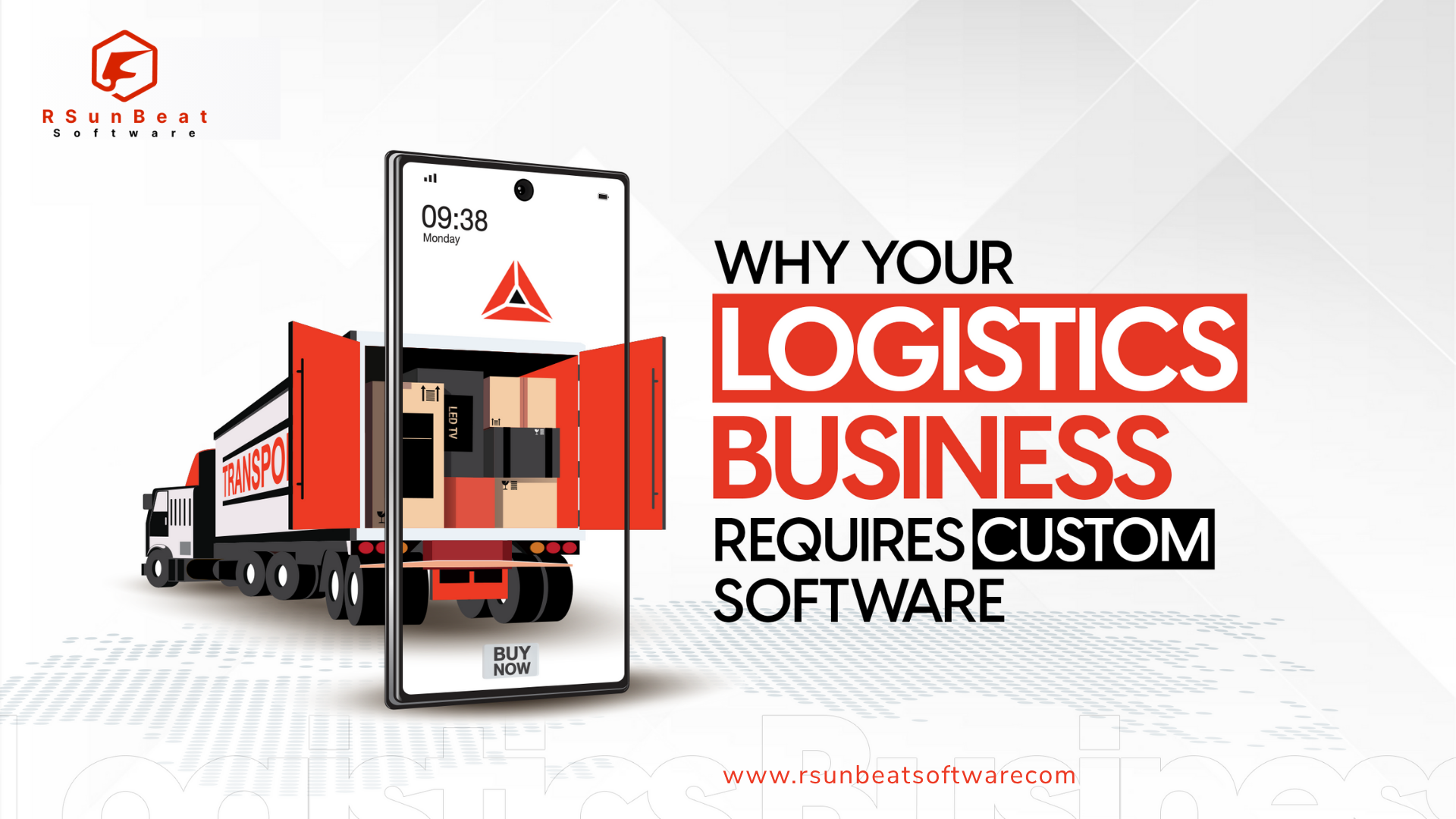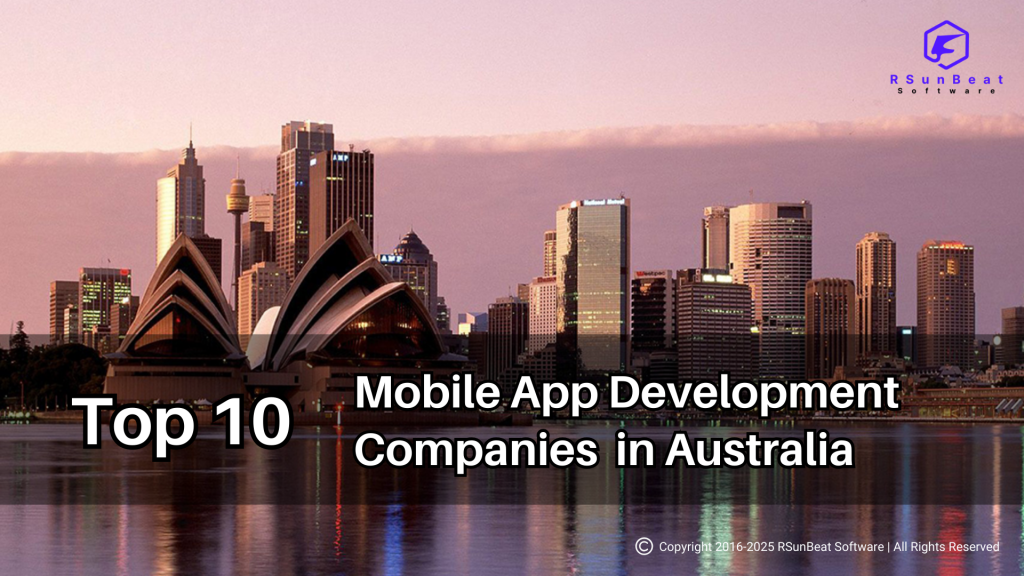
The Future of Logistics: Why Businesses Are Switching to Custom Accounting-Integrated Software in 2025–26
The 2025–26 Shift in Logistics Technology
Global logistics and transportation industries are entering a new era of automation, data intelligence, and connected ecosystems. By 2026, the global logistics software market is projected to surpass $18 billion, driven by a surge in AI-powered automation, real-time visibility, and financial integration across the supply chain.
As supply networks expand and compliance grows more complex, logistics businesses are realizing a critical truth:
This is why the industry is witnessing explosive demand for custom logistics software with built-in accounting features—similar to QuickBooks, but tailored for logistics operations.
From freight carriers to global distribution hubs, organizations are now prioritizing integrated systems that merge fleet management, delivery tracking, invoicing, tax compliance, and profitability analytics into one platform.
Market Research: How the Global Logistics Tech Market Is Evolving
According to Allied Market Research, the logistics automation market is growing at over 10% CAGR (2024–2026), with strong adoption across North America, Europe, and Asia-Pacific. The shift isn’t just about digitization — it’s about intelligent automation and financial visibility.
Modern logistics firms are embracing:
-
AI and predictive analytics for demand forecasting and cost optimization.
-
IoT and telematics for real-time vehicle, fuel, and cargo monitoring.
-
Blockchain for transparent and tamper-proof supply chain records.
-
Cloud-based accounting for automated invoicing, expense mapping, and multi-currency reconciliation.
Regional trends shaping 2025–26:
-
USA & Canada: Focus on real-time freight visibility and automated financial workflows.
-
UAE & Germany: Adoption of compliance-driven logistics platforms integrating VAT and tax automation.
-
India & Singapore: Surge in SaaS-based logistics and transport ERP systems for SMEs.
-
Australia & UK: Expansion of AI-enabled fleet management and accounting integration for freight carriers.
Why Generic Tools Fall Short
Despite the availability of tools like QuickBooks, Xero, or standalone TMS (Transportation Management Systems), logistics companies still struggle with fragmented data and disconnected workflows.
Common operational challenges include:
-
Repeated manual data entry between logistics and accounting systems.
-
Difficulty in tracking expenses by vehicle, driver, or route.
-
Limited visibility into profit margins and real-time financial health.
-
Delayed tax compliance due to inconsistent reporting.
-
Inefficient reconciliation, as invoices and delivery reports live in different silos.
As one logistics executive put it:
“For every hour we save tracking deliveries, we lose another reconciling invoices in spreadsheets.”
The answer? Unified, custom-built logistics platforms that seamlessly integrate accounting features.
The Rise of Integrated Accounting in Logistics Platforms
Accounting is no longer a back-office function — it’s the financial backbone of operational efficiency. In 2025–26, leading logistics companies are embedding accounting modules directly into their logistics software.
These platforms behave like QuickBooks for Logistics, allowing:
-
Automated invoice generation for every shipment or delivery.
-
Fleet expense tracking linked to drivers, routes, and fuel consumption.
-
Multi-currency support for global operations.
-
Integrated tax filing and reporting aligned with local laws (GST/VAT).
-
Real-time profit and loss dashboards by region, vehicle, or project.
Example:
A Dubai-based freight company reduced monthly reconciliation time by 60% after integrating a custom accounting module into its logistics platform. Now, every delivery automatically updates financial records — no manual entry, no errors, no delays.
Key Benefits of Custom Logistics Software (with Accounting Features)
1. Unified Data Visibility
Custom software connects logistics, finance, and operations into one ecosystem.
Decision-makers can see cash flow, fleet expenses, route profitability, and tax summaries in real-time.
2. Cost Efficiency
Automating manual financial processes reduces administrative overhead.
Companies adopting integrated platforms report up to 30% reduction in back-office costs.
3. Time Savings
Automated invoicing, billing, and reconciliation free up staff time, enabling teams to focus on service delivery and growth.
4. Regulatory Compliance
Built-in tax compliance modules (GST/VAT) ensure accurate, country-specific filing — reducing penalties and audit risks.
5. Scalability
Custom-built logistics software grows with the business — accommodating new branches, vehicles, currencies, and user roles without limitations.
6. Custom Analytics & KPIs
Unlike generic accounting tools, custom dashboards can measure profitability by route, vehicle, driver, depot, or region.
Essential Features to Include in 2025–26 Logistics Accounting Software
| Feature | Description | Business Value |
|---|---|---|
| Smart Invoice Automation | Automatically generate invoices from delivery data | Saves 50–70% admin time |
| Real-Time Fleet Expense Tracking | Monitor fuel, maintenance, tolls per trip | Improves cost visibility |
| Multi-Currency & Multi-Depot Support | Handle global operations and payments | Ideal for international logistics |
| Route-Level Profitability Analysis | Compare revenue vs. expenses per route | Enables data-driven route planning |
| AI-Powered Predictive Maintenance | Forecast maintenance costs and downtime | Reduces unexpected breakdowns |
| Tax Compliance Automation (GST/VAT) | Regionalized compliance for UAE, UK, India, etc. | Ensures legal accuracy |
| CRM + Banking Integration | Unified customer billing and payment reconciliation | Streamlines cash flow |
| Advanced Analytics Dashboard | Financial insights with drill-downs | Enhances strategic decision-making |
Cost & ROI Analysis — Why Custom-Built Beats Off-the-Shelf
While off-the-shelf tools like QuickBooks or Xero provide good starting points, they lack logistics-specific automation.
Custom-built solutions, though higher in initial investment, deliver superior ROI and control in the long run.
| Parameter | Off-the-Shelf Software | Custom Logistics Accounting Software |
|---|---|---|
| Integration Flexibility | Limited | Seamless with TMS, CRM, IoT, and banking APIs |
| Scalability | Restricted | Built for business growth |
| Automation | Manual imports/exports | Full workflow automation |
| Data Ownership | Shared/cloud-restricted | 100% business-owned |
| ROI Timeline | Short-term savings | Long-term 2–3x ROI |
| Security | Standard protocols | Enterprise-grade with role-based access |
Example ROI Insight:
A Canadian freight operator that switched from standalone QuickBooks to a custom logistics accounting platform achieved:
-
2x improvement in reporting accuracy
-
25% faster billing cycles
-
Administrative savings of $100K annually
Real-World Examples: Businesses Transforming Through Integration
Case Study 1 — North American Trucking Company
A US-based trucking firm deployed a custom logistics ERP integrating route management, accounting, and payroll.
Results:
-
Reduced manual data reconciliation by 80%.
-
Real-time fuel cost tracking and invoice automation.
-
Improved cash flow forecasting accuracy by 35%.
Case Study 2 — Logistics Startup in Singapore
A logistics startup managing cross-border freight between Singapore and Malaysia adopted custom SaaS logistics software with QuickBooks-like accounting integration.
Outcome:
-
Automated invoice-to-payment workflows.
-
Reduced time-to-close monthly books from 10 days to 2.
-
Increased on-time payment rate by 40%.
Case Study 3 — UAE Freight Company
A Dubai-based freight operator integrated a custom accounting dashboard within their transport management system.
Outcome:
-
60% faster reconciliation
-
Full VAT compliance reporting
-
Real-time profitability insights by depot and driver
The Future of Logistics Software: AI, Automation, and Finance Intelligence
By 2026, logistics technology will merge AI-driven predictive insights with real-time accounting automation.
Future-ready solutions will:
-
Predict route profitability and fuel usage.
-
Automatically adjust pricing and invoicing based on live data.
-
Integrate blockchain for secure shipment and payment verification.
-
Enable voice-based financial approvals via mobile devices.
As global logistics networks expand, custom-built, cloud-based software will be the competitive differentiator — combining scalability, transparency, and financial precision.
The Future of Logistics Efficiency Is Custom + Connected
The logistics sector’s success now depends on connected data, financial automation, and operational intelligence.
Custom logistics software with accounting integration isn’t just a technological upgrade — it’s a strategic investment that drives ROI through accuracy, automation, and agility.
🚀 Looking to transform your logistics and accounting operations?
Let’s build a custom logistics platform that streamlines your routes, finances, and profits — all in one intelligent system. Connect RSunBeat Software today!
Testimonials ~
What Our Clients
Are Saying
Your trust drives our passion. Here’s how we’ve helped businesses like yours thrive with tailored solutions and unmatched support.

Hussein Termos
CEO
“RSunBeat Software is a top-tier web development company for the real estate industry. They delivered a user-friendly, customized platform that met our needs perfectly. Their innovative solutions, on-time delivery, and excellent support made the process seamless. Highly recommended for exceptional development services!”

James Carten
Founder & CEO
“Before working with RSunBeat Software, our real estate business faced issues with unreliable mobile apps, poor user experiences, and missed deadlines. RSunBeat delivered a seamless, high-performing app with excellent functionality, intuitive design, and timely execution, transforming our operations. Their expertise and dedication make them a trusted partner.”

Darla Shewmaker
VP of Marketing
“RSunBeat Software developed a great, user-friendly mobile app that exceeded our expectations. The team was extremely professional, kept us updated throughout the process and completed the work on time. Their expertise and dedication made the whole project seamless. We highly recommend RSunBeat for their great work and reliability!”

Nicholas Toh
Project Manager
“RSunBeat Software delivered an amazing web and app development experience. Their team was highly professional, detail-oriented, and dedicated to bringing our vision to life. The final product was seamless, user-friendly, and exceeded our expectations. We highly recommend them for top-notch development services!”
Our Technology Experts
Are Change Catalysts
Mail to Our Sales Department
info@rsunbeatsoftware.com
Our Skype Id
Rsunbeat Software


